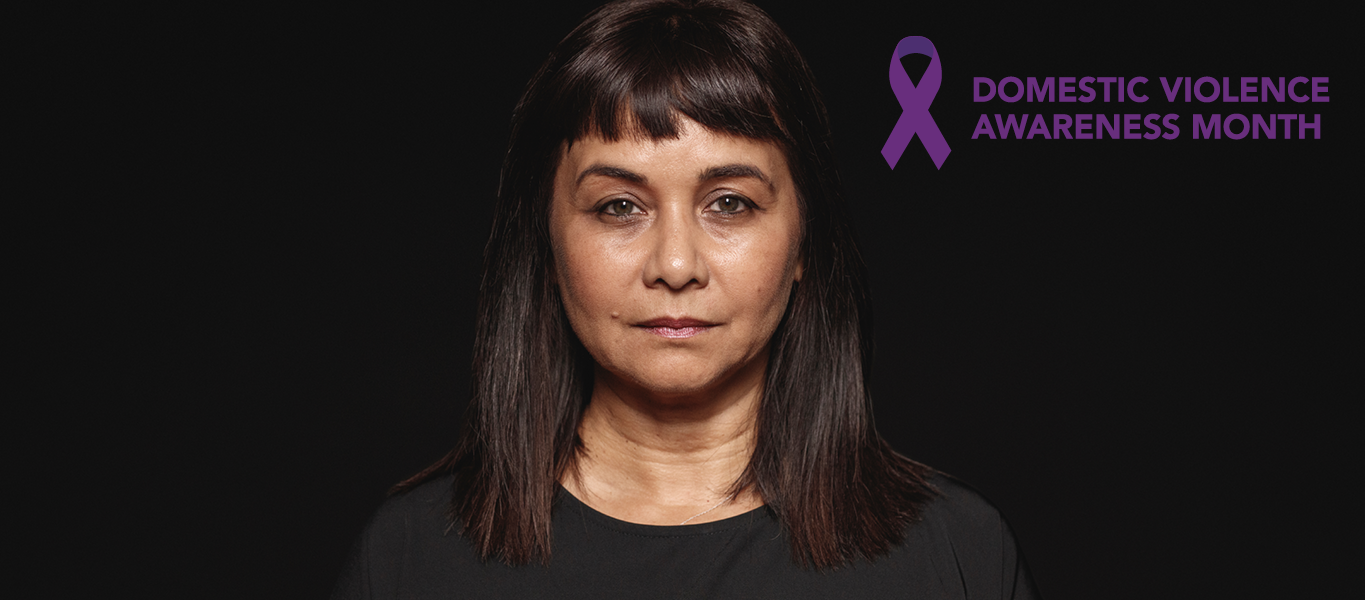
Domestic Violence Awareness Month
Domestic Violence Awareness Month, held every October, encourages us to raise awareness about domestic violence and abuse in our community, honor the lives that have been lost, and recognize the work that remains to be done. Often surrounded by silence and shame, domestic violence is a complex and difficult issue to discuss. It affects people of all genders and all backgrounds — and likely affects someone you know. Take time to talk with your loved ones, reflect on your own relationships, and learn more about how you can help.
What is Domestic Violence?
Domestic violence, also known as intimate partner violence, is a recurring, chronic, deliberate pattern of behaviors perpetuated by one partner (or former partner) to gain power and maintain control over another in a relationship. It affects individuals from all backgrounds — regardless of age, gender identity, race, ethnicity, sexual orientation, economic status, education, or religion. Domestic violence includes any behaviors that intimidate, manipulate, humiliate, isolate, frighten, coerce, threaten, blame, hurt, or injure someone, and may include emotional, financial, physical, psychological, sexual, and spiritual abuse.
Although the frequency and severity of domestic violence can vary dramatically, the single constant is one partner’s perpetual efforts to maintain power and control over the other. For survivors, the ongoing exposure to abuse and the resulting trauma can have devastating and long-lasting effects on their physical, mental, and emotional health. The journey to safely escape and fully heal from an abusive relationship is different for each person and will take time, space, and support.
If you or someone you know needs help, call our 24-hour confidential crisis hotline at 619.234.3164.
Get Involved
Take action by learning about the issue, joining the conversation, supporting survivors, and sharing information with your community:
- Speak out by starting a conversation with your friends, family and neighbors to help end the silence around domestic violence.
- Learn about the warning signs of domestic violence and how to get help for yourself or someone you know.
- Be an advocate and understand how to help someone who is in an abusive relationship — offer your compassion and support by listening without judgment and respecting their decisions.
- Join YWCA USA’s Week Without Violence campaign from October 17-22 to advocate for survivors and take steps towards ending gender-based violence.
- Be inspired by stories of courageous survivors who found the help they needed to reclaim their lives.
- Help survivors by making an online gift to support our life-changing solutions for adult and child survivors.
- Engage your legislators in advocating for survivor-centered public policies that strengthen protections and resources for survivors.
- Share on social media why you are taking a stand against domestic violence. Use #DVAM22 and be sure to tag us on Facebook, Twitter, or LinkedIn.
- Wear purple, the color of domestic violence, to raise awareness of this critical community issue. Take a selfie and share on social media using #DVAM22.
Community Need
Domestic violence is indiscriminate and one of the most pervasive threats to safety and wellbeing in our community. Learn more about its impact:
- 1 in 4 women and 1 in 7 men experience domestic violence in their lifetime, regardless of their background (Centers for Disease Control).
- More than half (54%) of transgender or non-binary people experience domestic violence (National Center for Transgender Equality).
- 1 in 7, or 15 million, children in the U.S. are affected by domestic violence each year (Centers for Disease Control).
- 99% of domestic violence cases involve financial abuse, including forced job loss, damaged credit history and substantial debt.
- 58% of adult Californians are personally affected by domestic violence, either having been a victim or abuser, or knowing someone who is.
- In San Diego County, over 18,000 domestic violence incidents were reported to law enforcement last year, although the majority are never reported due to fear and intimidation.
